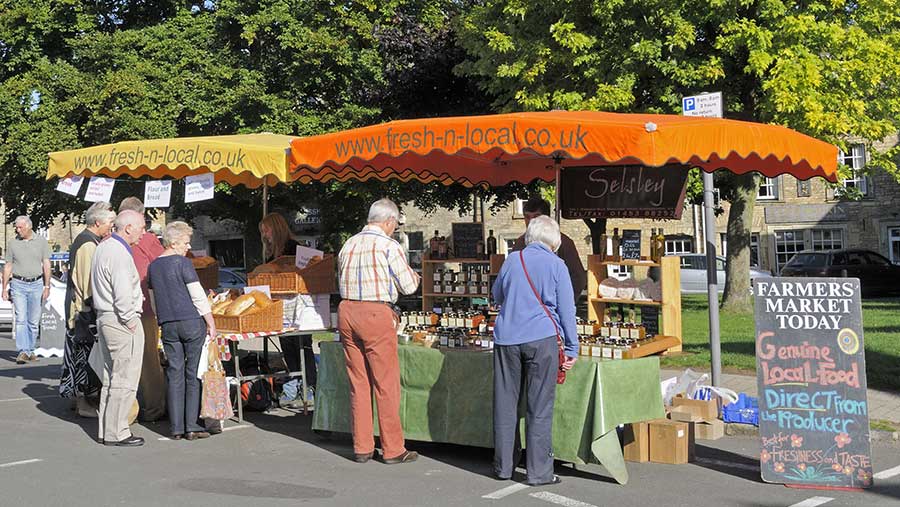How to protect staff and produce at farmers markets
 © FLPA/REX/Shutterstock
© FLPA/REX/Shutterstock Keeping staff, food and customers safe is a priority when selling at farmers’ markets.
NFU Mutual technical manager, Nathan Brew, highlights five key areas of concern for farmers.
See also: Dos and dont’s for starting a diversification this year
1. Transport
- Ensure your transportation vehicle is well maintained and fit for purpose.
- Consider whether or not you need refrigerated storage – if so, make sure you know what fuel is required to safely power this.
- Have adequate risk assessment paperwork in place – many accidents happen as a result of interaction with tailgate lifts and flatbed trailers and falls from height.
2. Fire hazards
- Ask the market organisers to provide a fire safety briefing for the site – ensure both you and any workers are familiarised with any hazards and control measures in place.
- Make sure any canopy complies with British standard.
- Keep the stall and immediate surrounding area free from rubbish and do not permit smoking.
- Have a small, dry powder fire extinguisher to hand and ensure that it is in date.
- Use modern, well maintained extension leads if necessary but limit use.
3. Manual handling
- Where possible, keep the size of boxes to a minimum.
- Store heavier items at the bottom of the vehicle bed.
- Ensure workers are confident with good lifting techniques.
- When moving heavy items, use suitable mechanical equipment such as sack trucks and trolleys.
- Consider whether you need to wear and provide protective footwear when moving heavier loads.
4. The stall
- Keep your stall and surrounding area clear of any rubbish or clutter.
- If a market takes place during winter months, ensure the area is well lit and keep torches in case of lighting failure.
- Consider items at child height which could cause injury or damage.
- Clear up any breakages or spillages immediately.
- Ensure both produce and marketing materials are stored safely and securely to avoid falling or collapsing.
- In case of an injury or accident, record the names and telephone numbers of any witnesses – this could be invaluable in helping your insurer defend claims of negligence.
5. Food safety
- Register with your local environment health department – this is compulsory for all food outlets.
- Ensure food is labelled with a description, weights and sales-units as well as ingredients and allergy advice, where appropriate.
- Have a written food management system in place. You can produce your own plan; however, the Food Standards Agency has developed a pack called Safer Food, Better Business which can be used for this.
- Ascertain anyone handling open food has, at least, basic food hygiene training.
- Make sure hand-washing facilities are available and store any cleaning products safely.
